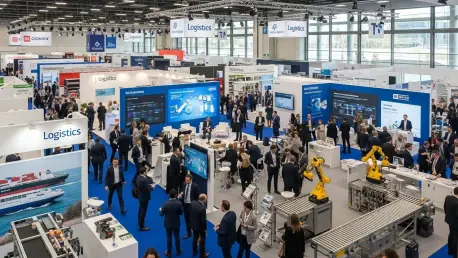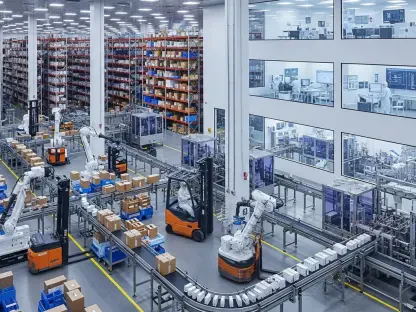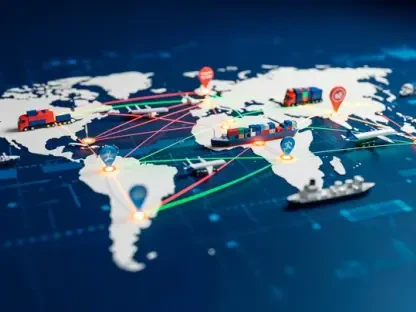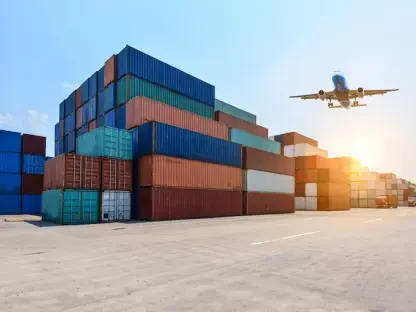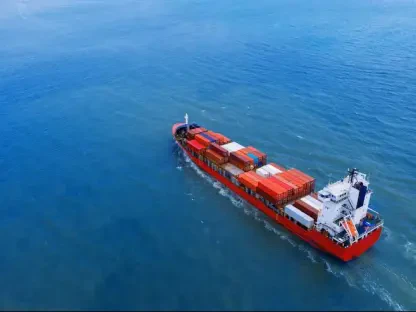In an era where global supply chains face unprecedented disruptions, from geopolitical tensions to technological shifts, Miami emerges as the epicenter of innovation and collaboration with a landmark event at the Miami Beach Convention Center. Held from November 11 to 13, this international trade fair, encompassing Transport Logistic Americas, Air Cargo Americas, and the newly launched Project Cargo Americas, draws industry leaders from across the globe to tackle the most pressing challenges in logistics. With exhibitors from 18 countries and a sprawling 5,000 square meters of exhibition space, this gathering promises to chart the course for the future of multimodal transport and supply chain resilience. The question looms large: how will this hub shape the next chapter of global trade?
Miami Takes Center Stage as Logistics Powerhouse
Miami’s strategic position as a gateway to the Americas solidifies its role as the ideal host for this transformative trade fair. Nestled at the crossroads of North, Central, and South America, the city facilitates not just the movement of goods but also the forging of critical industry relationships. The event, housed in Halls C and D of the Miami Beach Convention Center, brings together a diverse array of stakeholders, from shippers to tech innovators, under one roof for three days of intense networking and knowledge exchange.
The sheer scale of participation underscores the event’s global significance. With 55% of exhibitors hailing from North America, 23% from Europe, 15% from Asia, and 7% from Central and South America, the fair mirrors the interconnected nature of modern logistics. This geographic diversity fosters a unique environment for cross-border collaboration, addressing challenges that transcend regional boundaries.
Beyond its international appeal, the event stands out for its accessibility. Free admission to both the trade fair and its comprehensive 19-session conference program ensures that a wide range of professionals, including C-level executives and decision-makers, can engage with cutting-edge ideas. Registration numbers have already surpassed previous editions, with a significant portion of attendees traveling from outside the U.S., signaling Miami’s growing stature as a global logistics nexus.
Key Moments That Defined the 2025 Hub
The event’s multimodal scope sets it apart, covering every facet of transport—air, sea, rail, road, and digital logistics. This comprehensive approach reflects the industry’s need for integrated solutions in an increasingly complex world. While air cargo remains a cornerstone with its established presence, other modes like maritime and rail transport now account for half of the exhibitors, balancing traditional strengths with emerging priorities.
A standout feature is the introduction of Project Cargo Americas, which spotlights innovations in heavy-lift and oversized cargo transport. This segment addresses a niche yet vital area of logistics, catering to industries requiring specialized handling. Combined with a strong focus on digitalization, where one in five exhibitors showcases advancements in IT and data-driven solutions, the fair offers a forward-looking perspective on how technology and expertise can converge to solve real-world problems.
Expert Insights from Conference Sessions
Across two dedicated stages, the conference program delivers 19 sessions packed with expert analysis on the future of logistics. Topics range from supply chain resilience to the integration of multimodal transport systems, providing attendees with actionable strategies to navigate today’s challenges. Dr. Robert Schönberger, Global Industry Lead at Messe München, emphasized Miami’s pivotal role in amplifying the event’s international reach, highlighting how the city enhances the dialogue on global trade dynamics.
These sessions serve as a crucible for thought leadership, drawing speakers from varied backgrounds to share insights on pressing issues. Discussions on sustainability in logistics and the adoption of green technologies resonate strongly, reflecting the industry’s push toward more responsible practices. The depth of expertise on display ensures that attendees leave with a clearer understanding of where the sector is headed over the next few years.
Dynamic Exchanges in Panel Discussions
Panel discussions at the event bring a collaborative spirit to the forefront, tackling themes like digital transformation and the seamless integration of transport modes. With panelists representing diverse regions and sectors, these conversations capture a wide array of perspectives on innovation and partnership. The debates often center on how to maintain stability in a connected yet uncertain global economy, sparking ideas that challenge conventional thinking.
The diversity of viewpoints fuels robust exchanges, as participants grapple with balancing technological advancements with operational realities. For instance, the tension between automation and human oversight in logistics operations emerges as a recurring theme, prompting lively discourse. These panels not only inform but also inspire attendees to rethink their approaches to long-standing industry hurdles.
Interactive Learning Through Workshops
Workshops and live demonstrations offer a hands-on dimension to the event, engaging participants with practical solutions to logistics challenges. These sessions cater especially to decision-makers eager to see real-world applications of new tools and methods. From simulations of supply chain disruptions to demos of cutting-edge software, the interactive elements bridge the gap between theory and practice.
The value of these experiences lies in their ability to make complex issues tangible. Attendees gain firsthand exposure to innovations that can streamline operations, whether through optimized routing systems or enhanced cargo tracking. This practical focus ensures that the knowledge acquired translates directly into operational improvements for many businesses.
Cutting-Edge Innovations on Display
The exhibition floor buzzes with breakthroughs in technology and equipment, showcasing the latest in telematics, IT solutions, and data-driven logistics. Exhibitors unveil tools designed to enhance efficiency, from predictive analytics for demand forecasting to automated systems for warehouse management. These advancements signal a shift toward smarter, more responsive supply chains.
The spotlight on Project Cargo Americas reveals specialized equipment for handling oversized loads, a critical need for industries like energy and infrastructure. This segment’s inclusion highlights the event’s commitment to addressing niche markets with tailored innovations. Together, these displays paint a picture of a logistics sector poised for transformation through technology and ingenuity.
Lasting Impact on Global Logistics
Looking back, the Miami trade fair from November 11 to 13 stood as a defining moment for the logistics industry, blending technological innovation with the irreplaceable value of personal interaction. The event demonstrated how collaboration across borders and sectors could address modern challenges, with Miami proving to be an ideal backdrop for forging enduring partnerships. Its success lay in uniting diverse voices to tackle shared goals, from digital integration to sustainable practices.
The relationships and solutions born during those three days laid a foundation for sustained growth in the sector. Industry leaders left with renewed focus on balancing innovation with stability, inspired by the insights shared across sessions and exhibitions. The emphasis on face-to-face connections, even in a digital age, underscored a timeless truth: human engagement remains at the heart of progress.
Moving forward, the challenge lies in translating these discussions into actionable strategies. Stakeholders must prioritize investments in digital tools while nurturing the partnerships formed at the event to build resilient supply chains. As the industry evolves, the lessons from Miami will guide efforts to anticipate disruptions and seize opportunities, ensuring that global logistics remains agile and adaptive in the years from 2025 and beyond.
